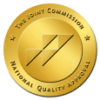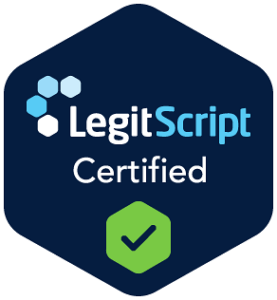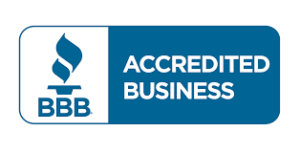When seeking addiction treatment, many people feel confused by the different options available. Understanding Drug Detox vs Drug Rehab in Tennessee is essential for making informed decisions about recovery. These terms are often misunderstood, but they represent distinct stages in the process of overcoming substance abuse. In this article, we’ll break down the key differences and explain how each option plays a crucial role in achieving long-term sobriety.
Fortunately, at Tennessee Detox Center, our private luxury rehab offers both medical detox and inpatient drug rehab. We know it can be confusing to determine whether you need to visit detox centers vs. rehab. That’s why we offer both treatment programs, along with luxury accommodations like private rooms, gourmet catered meals, and relaxing spaces. Our goal is to help you feel safe, comfortable, and ready to tackle any stage of recovery.
What Is Drug Detox?
Drug detox, short for detoxification, is the process of clearing the body of harmful substances. Its primary purpose is to manage withdrawal symptoms and stabilize people physically before further treatment begins.
Withdrawal symptoms can vary based on a substance. For instance, in alcohol withdrawal, people can suffer from incredibly dangerous symptoms such as:
- Delirium tremens: This condition involves confusion, rapid heartbeat, and dangerous changes in body temperature.
- Seizures: These can lead to coma or death if not treated promptly.
- Nausea and vomiting
- Shakes or tremors
- Heightened anxiety
- Irritability
Other substances, such as opioids (e.g., heroin, prescription painkillers) and benzodiazepines (e.g., Valium, Xanax), also have potentially life-threatening withdrawal symptoms. Drug detox helps manage these symptoms by providing medications and monitoring for potential complications.
Why Is Drug Detox Important?
Drug detox is an essential first step in the recovery process for individuals struggling with substance use disorder. Without proper detoxification, people may continue to experience cravings and other physical symptoms that make it difficult to achieve long-term recovery.
Because withdrawal symptoms can range from mild discomfort to life-threatening complications, detox often requires medical supervision, especially for those with a severe dependency. Unfortunately, some people might believe they can detox on their own, but this can be dangerous and even fatal.
When it comes to choosing between drug detox vs drug rehab, it’s always best to consult with a healthcare professional to determine the best course of action. In general, drug detox is the necessary first step in recovery, as it helps individuals break free from their physical dependence on drugs. However, it’s crucial to recognize that detox alone is not enough for long-term sobriety.
What Our Patients Say: Stories of Hope and Recovery










Thank you all so much!




















The facility itself is clean, well-maintained, and equipped with all the necessary amenities to provide a serene and supportive environment.
What truly stands out is the personalized approach to care. The team developed a treatment plan tailored to my specific needs, incorporating both medical and holistic therapies. This comprehensive approach not only addressed my physical withdrawal symptoms but also supported my mental and emotional well-being.
The counselors and therapists offer a range of therapies that helped me understand the root causes of my addiction and develop effective coping strategies. Group therapy sessions provided a safe space to share experiences and gain insights from others on similar journeys.
Overall, my experience with this medical detox program was life-changing. The compassionate and skilled staff, combined with the personalized treatment approach, provided me with the foundation I needed for a successful recovery. I highly recommend this facility to anyone seeking a safe and supportive environment for detox and recovery.
But it's the people who make this place truly special. The staff, they've been there, they understand the struggle. No judgment, just support, encouragement, and a genuine desire to help you heal. They treated me like an old friend, even though I was just visiting for my buddy.
They've got a whole range of therapies to help you on your journey – individual counseling, group sessions, and even a fitness center to get you moving again. It's not just about detox. It's about rebuilding your life from the ground up.
My friend, the owner, he's living proof that this place works. He poured his heart into creating a haven for those seeking recovery, and his passion shines through in every detail.
So, if you're ready to take that first step, this is the place. Trust me, they'll walk beside you every step of the way.
Types of Drug Detox

Medical Detox
Medical detox is conducted in a clinical setting with professional supervision. Medications may be used to manage withdrawal symptoms, making the process safer and more comfortable. Medical detox is highly recommended for substances like alcohol, benzodiazepines, and opioids due to their severe withdrawal risks. At Tennessee Detox Center, we specialize in offering supportive, medical detox in Tennessee tailored to individual needs.
Our high-end treatment options for addiction include medical detox and 24/7 monitoring in a comfortable environment. During medical detox, you can take advantage of services like:
- Medication management
- Access to trained medical staff
- Monitoring of vital signs and symptoms
- Counseling and therapy options
- Nutritional guidance
When choosing between attending detox centers vs. rehab in Tennessee, consider that detox is the crucial first step in overcoming addiction. Our team of medical professionals will support and guide you through this challenging process, ensuring your safety and comfort at all times.

Medication-Assisted Detox
Similar to medical detox, this approach adds medication support to reduce cravings or withdrawal symptoms. Some of the many medications you might be able to take on an outpatient basis include:
- Methadone: This medication is used to reduce cravings and withdrawal symptoms in individuals addicted to opioids.
- Buprenorphine: Also used for opioid addiction, this medication can shorten the duration of your detox and make it more manageable.
- Naltrexone: This medication works by blocking the effects of opioids or alcohol, reducing cravings and preventing relapse.
While medication-assisted treatment can be a helpful tool in recovery, it is not a cure for addiction. It must be used in conjunction with therapy and other forms of support to address the underlying issues that contribute to addiction. That’s why it’s vital to learn the difference between drug detox vs drug rehab and see which is right for you.

At-Home Detox
Some may consider detoxing at home. While this option may appear more convenient, it is risky, especially without medical oversight. Serious withdrawal symptoms can escalate quickly and should be handled by professionals.
There is a misconception that some substances, such as cannabis, don’t have “Real” withdrawal symptoms and only take a matter of willpower to stop. This is not true. Any substance that has addictive properties can cause withdrawal symptoms, and these should not be taken lightly.
Symptoms of withdrawal can vary from person to person and depend on the type of substance used. It’s essential to consult with a healthcare professional before attempting an at-home detox to determine the safest and most effective approach for your specific situation.
Detox Timelines for Different Substances
- Alcohol
- Symptoms usually begin within 6-12 hours of the last drink.
- Peak at 24-72 hours, with severe symptoms such as seizures or delirium tremens occurring during this period.
- Typically resolves within 5-7 days.
- Cocaine
- Symptoms start as early as a few hours after use.
- Intense cravings and fatigue peak around 1-3 days.
- Symptoms usually subside within 1-2 weeks.
- Benzodiazepines
- Symptoms typically begin 1-4 days after the last dose.
- Peak withdrawal symptoms can last 10-14 days but may persist longer, especially for long-term users.
- Opioids
- Symptoms can start 6-12 hours after the last use (for short-acting opioids).
- Peak at 2-3 days and taper off at about 7-10 days.
Each individual’s experience can differ, so medical supervision is key to managing potential risks effectively. Fortunately, we at TN Detox Center know that each person’s detox journey is different. Whether you need to detox from opioids, alcohol, or other substances, we provide personalized treatment plans and medical support to help you safely withdraw from substances.
What Is Drug Rehab?
While detox addresses physical dependence, drug rehab focuses on the mental, emotional, and behavioral aspects of addiction. Drug rehab programs aim to help individuals understand the underlying causes of addiction, develop coping strategies, and prevent relapse.
No matter what type of drug rehab you explore, be it inpatient or outpatient, several key elements stay the same. These include:

Individualized Treatment
Customized care plans addressing unique needs to foster personal growth and lasting recovery.
Group Therapy
Connect, share, and learn with peers, building supportive relationships and fostering mutual growth.

Medication Assisted Treatment
Evidence-based medications enhancing recovery, alleviating cravings, and promoting long-term sobriety.

Dual Diagnosis Treatment
Comprehensive care for co-occurring disorders, addressing mental health and addiction together.

Holistic Therapy
Nurturing mind, body, and spirit through diverse therapies for a well-rounded recovery experience.
Aftercare planning:
A comprehensive drug rehab program will also include aftercare planning to support individuals in maintaining their sobriety.
Types of Drug Rehab Programs
Just like detox has different timelines and formats, drug rehab can also vary greatly. Here are some of the most common types of drug rehab programs we offer at Tennessee Detox Center.
Inpatient Drug Rehab
In inpatient drug rehab, individuals live onsite at the treatment facility and receive intensive, round-the-clock care. This option is ideal for those with severe addictions or co-occurring mental health conditions. For people with severe addiction, inpatient drug rehab is often the next step after inpatient medical detox.
At Tennessee Detox Center, our luxury inpatient rehab offers more amenities than most other rehabs in Tennessee. These include a peaceful and serene setting, gourmet meals prepared by our on-site chef, and various therapeutic activities such as yoga, meditation, and weekly outings.
Partial Hospitalization Programs (PHP)
A hybrid of inpatient and outpatient programs, PHPs provide structured care during the day, allowing clients to return home in the evening. This option is ideal for those who have completed an inpatient program but still need more support during the transition back to their daily lives. PHPs typically consist of therapy sessions, group meetings, and other activities similar to those offered in residential programs.
Some benefits of partial hospitalization programs include:
- Cost-effective alternative to inpatient treatment
- Allows clients to return home in the evenings while receiving treatment
- Provides a supportive environment during the critical early stages of recovery
At Tennessee Detox Center, our PHPs are tailored to each client’s specific needs and may vary in duration depending on their progress. Our team of experienced therapists and addiction specialists work closely with clients to develop individualized treatment plans that address your addiction. We can offer PHPs 5 days a week up to 8 hours per day.
Intensive Outpatient Drug Rehab
Also known as IOP, intensive outpatient drug rehab involves regularly scheduled therapy and treatment sessions that allow individuals to continue living at home while receiving care. This option is ideal for those with less severe addictions or who have already completed inpatient drug rehab.
However, unlike outpatient rehab, IOP requires a higher level of commitment and time investment. Patients attend therapy sessions several times a week for a few hours at a time. At Tennessee Detox Center, we offer IOP for 3-5 days a week for 3-4 hours a day, providing comprehensive care. If you’re looking for a luxury rehab near me that provides different accommodations and treatment levels, Tennessee Detox Center is here to help.
Outpatient Drug Rehab
In outpatient drug rehab, flexible programs allow individuals to receive treatment while continuing daily responsibilities like work or family obligations. However, the level of care is less intensive compared to inpatient rehab. This is a great step-down option for those who have completed an inpatient program but still need ongoing support.
Outpatient drug rehab programs may also offer a range of services, including individual and group therapy, medication management, relapse prevention techniques, and aftercare planning. The length of the program can vary from a few weeks to several months depending on the individual’s needs.
At the Tennessee Detox Center, we offer personalized rehab programs that address the unique needs of each client, setting the foundation for long-term recovery.
Frequently Asked Questions about Drug Rehab
No, detox and rehab are two different stages of addiction treatment. Detox focuses on the physical aspect of addiction by helping individuals safely and effectively rid their bodies of drugs or alcohol. Rehab, on the other hand, addresses the psychological and behavioral aspects of addiction through therapy and other treatment modalities. Both are important steps in achieving long-term recovery.
Detox may be necessary for those who are physically dependent on drugs, while rehab focuses more on addressing the underlying causes of addiction and developing coping skills for long-term recovery. It is important to consult with a medical professional or addiction specialist to determine which option is best for you.
Detox can be a challenging process both physically and emotionally as your body adjusts to being without drugs. You may experience withdrawal symptoms such as nausea, headaches, anxiety, and cravings. However, our team will provide medical support and prescribe medication if needed to help manage these symptoms and make the detox process as comfortable as possible.
After completing detox, you will transition into a treatment program that best suits your needs. This may include residential treatment, intensive outpatient programs, or regular outpatient treatment. Our team will work with you to create an individualized treatment plan that addresses your specific needs and goals for recovery.
Coverage for detox and rehab programs varies depending on your insurance provider and plan. However, most insurance plans do provide coverage. Our team can assist you in understanding your insurance benefits and determining what costs may be covered.
Elevating Recovery: Unmatched Amenities & Individualized Support

State-Of-The-Art Facility

Luxury Bedrooms

Dedicated Private Chef

Fun and Games

Clinician & Medical Owned & Operated

Family Therapy Sessions

Twice‑Weekly Individual Therapy

Small Groups, Big Recovery
Get Family Support Now
Supporting Families Through Recovery
We understand addiction affects the whole family. Our comprehensive family program helps rebuild trust and restore relationships.
Weekly Family Therapy Sessions
Educational Workshops
Support Groups
Communication Skills Training
Get Family Support Now


Educational and resource content provided on Tennessee Detox Center pages is intended to support understanding of addiction and recovery. This content is not a substitute for professional medical care.
Third-party references are informational only and do not imply endorsement.
In medical emergencies, call 911 immediately.
Treatment decisions should always involve licensed professionals. Insurance coverage must be verified directly.
Use of this website does not establish a provider-patient relationship.
American Psychiatric Association. (2013). Diagnostic and statistical manual of mental disorders (5th ed.). https://doi.org/10.1176/appi.books.9780890425596
Referenced indirectly when discussing substance use disorder and withdrawal symptoms.
National Institute on Drug Abuse. (n.d.). Drug facts: Understanding drug use and addiction. U.S. Department of Health and Human Services. Retrieved July 29, 2025, from https://nida.nih.gov/publications/drugfacts/understanding-drug-use-addiction
Source for general addiction treatment principles and withdrawal management.
Substance Abuse and Mental Health Services Administration. (n.d.). Detoxification and substance abuse treatment: A Treatment Improvement Protocol (TIP) Series 45. Retrieved July 29, 2025, from https://store.samhsa.gov/product/TIP-45-Detoxification-and-Substance-Abuse-Treatment/SMA15-4131
Cited implicitly in discussions of detox protocols and medical supervision.
Mayo Clinic. (n.d.). Drug addiction (substance use disorder). Retrieved July 29, 2025, from https://www.mayoclinic.org/diseases-conditions/drug-addiction
Used to support the difference between physical and psychological dependence.
U.S. Department of Veterans Affairs – National Center for PTSD. (n.d.). PTSD and substance abuse in veterans. Retrieved July 29, 2025, from https://www.ptsd.va.gov/professional/treat/cooccurring/substance_use_problems_ptsd.asp
Implied in mentions of co-occurring disorders and trauma-informed care.
Centers for Disease Control and Prevention. (n.d.). Alcohol and public health: Alcohol-related disease impact. Retrieved July 29, 2025, from https://www.cdc.gov/alcohol/index.htm
Indirectly cited when discussing alcohol withdrawal and related health risks.
U.S. Food and Drug Administration. (n.d.). FDA-approved medications for opioid use disorder. Retrieved July 29, 2025, from https://www.fda.gov/drugs/information-drug-class/fda-approved-drugs-treat-opioid-use-disorder
Source for medications like methadone, buprenorphine, and naltrexone.

Medically Reviewed By:
Dr. Vahid Osman, M.D.
Board-Certified Psychiatrist and Addictionologist
Dr. Vahid Osman is a Board-Certified Psychiatrist and Addictionologist who has extensive experience in skillfully treating patients with mental illness, chemical dependency and developmental disorders. Dr. Osman has trained in Psychiatry in France and in Austin, Texas. Read more.

Clinically Reviewed By:
Josh Sprung, L.C.S.W.
Board Certified Clinical Social Worker
Joshua Sprung serves as a Clinical Reviewer at Tennessee Detox Center, bringing a wealth of expertise to ensure exceptional patient care. Read More
The Joint Commission – The Gold Seal of Approval® signifies that Tennessee Detox Center meets or exceeds rigorous performance standards in patient care, safety, and quality. It reflects a commitment to continuous improvement and clinical excellence.

LegitScript Certified – Confirms that Tennessee Detox Center operates in full compliance with laws and regulations, and meets high standards for transparency and accountability in addiction treatment marketing.

BBB Accredited – Demonstrates ethical business practices, commitment to customer satisfaction, and a trusted reputation within the community.
Psychology Today Verified – Indicates that Tennessee Detox Center is listed on Psychology Today, a trusted directory for verified mental health providers and treatment centers.
HIPAA Compliant – Ensures all patient health information (PHI) is protected and managed in accordance with strict federal privacy and data security standards.
ASAM Member – Tennessee Detox Center is a proud member of the American Society of Addiction Medicine (ASAM), reflecting a commitment to science-driven and evidence-based treatment standards.

Rutherford County Chamber of Commerce – Membership signifies active participation in the local community and support for regional growth and civic collaboration.
Addiction Group. (n.d.). Tennessee drug and alcohol statistics. Retrieved July 28, 2025, from https://www.addictiongroup.org/tennessee/drug-statistics/
Substance Abuse and Mental Health Services Administration (SAMHSA). (2023). 2023 ICCPUD state report: Underage drinking prevention – Tennessee. U.S. Department of Health and Human Services. Retrieved from https://library.samhsa.gov/sites/default/files/tennessee-iccpud-state-report-2023.pdf
Tennessee Alcoholic Beverage Commission. (2024). Report to prevent underage drinking, drunk driving, and other harmful uses of alcohol (PC 961). State of Tennessee. Retrieved from https://www.tn.gov/content/dam/tn/abc-documents/abc-documents/PC-961-2024-Report-to-Prevent-Underage-Drinking-Drunk-driving-and-Other-Harmful-Uses-of-Alcohol.pdf
National Institute on Alcohol Abuse and Alcoholism (NIAAA). (2012). Alcohol withdrawal syndrome. In S. C. Merrill & B. S. Frances (Eds.), The management of alcohol use disorders: A practical guide for clinicians (NIH Publication No. 12–5191). National Center for Biotechnology Information. Retrieved from https://www.ncbi.nlm.nih.gov/books/NBK64119/

Medically Reviewed By:
Dr. Vahid Osman, M.D.
Board-Certified Psychiatrist and Addictionologist
Dr. Vahid Osman is a Board-Certified Psychiatrist and Addictionologist who has extensive experience in skillfully treating patients with mental illness, chemical dependency and developmental disorders. Dr. Osman has trained in Psychiatry in France and in Austin, Texas. Read more.

Clinically Reviewed By:
Josh Sprung, L.C.S.W.
Board Certified Clinical Social Worker
Joshua Sprung serves as a Clinical Reviewer at Tennessee Detox Center, bringing a wealth of expertise to ensure exceptional patient care. Read More
The Joint Commission – The Gold Seal of Approval® signifies that Tennessee Detox Center meets or exceeds rigorous performance standards in patient care, safety, and quality. It reflects a commitment to continuous improvement and clinical excellence.

LegitScript Certified – Confirms that Tennessee Detox Center operates in full compliance with laws and regulations, and meets high standards for transparency and accountability in addiction treatment marketing.

BBB Accredited – Demonstrates ethical business practices, commitment to customer satisfaction, and a trusted reputation within the community.
Psychology Today Verified – Indicates that Tennessee Detox Center is listed on Psychology Today, a trusted directory for verified mental health providers and treatment centers.
HIPAA Compliant – Ensures all patient health information (PHI) is protected and managed in accordance with strict federal privacy and data security standards.
ASAM Member – Tennessee Detox Center is a proud member of the American Society of Addiction Medicine (ASAM), reflecting a commitment to science-driven and evidence-based treatment standards.

Rutherford County Chamber of Commerce – Membership signifies active participation in the local community and support for regional growth and civic collaboration.
Holistic Detox Services
Your journey toward healing begins today.
Compassionate Rehab Services
Yes, Your Insurance Covers Detox and Rehab Treatment
Insurances We Accept
- Verify your Insurance
- BCBS TN
- AETNA
- Cigna
- Anthem of KY
- Optum
- UMR
- Multiplan
What Our Patients Say: Stories of Hope and Recovery
Hear directly from those who have walked the path to recovery. Our patients’ stories highlight the compassionate care, effective programs, and life-changing support they’ve experienced. Let their journeys inspire you as you take your first steps toward healing.










Thank you all so much!




















The facility itself is clean, well-maintained, and equipped with all the necessary amenities to provide a serene and supportive environment.
What truly stands out is the personalized approach to care. The team developed a treatment plan tailored to my specific needs, incorporating both medical and holistic therapies. This comprehensive approach not only addressed my physical withdrawal symptoms but also supported my mental and emotional well-being.
The counselors and therapists offer a range of therapies that helped me understand the root causes of my addiction and develop effective coping strategies. Group therapy sessions provided a safe space to share experiences and gain insights from others on similar journeys.
Overall, my experience with this medical detox program was life-changing. The compassionate and skilled staff, combined with the personalized treatment approach, provided me with the foundation I needed for a successful recovery. I highly recommend this facility to anyone seeking a safe and supportive environment for detox and recovery.
But it's the people who make this place truly special. The staff, they've been there, they understand the struggle. No judgment, just support, encouragement, and a genuine desire to help you heal. They treated me like an old friend, even though I was just visiting for my buddy.
They've got a whole range of therapies to help you on your journey – individual counseling, group sessions, and even a fitness center to get you moving again. It's not just about detox. It's about rebuilding your life from the ground up.
My friend, the owner, he's living proof that this place works. He poured his heart into creating a haven for those seeking recovery, and his passion shines through in every detail.
So, if you're ready to take that first step, this is the place. Trust me, they'll walk beside you every step of the way.

